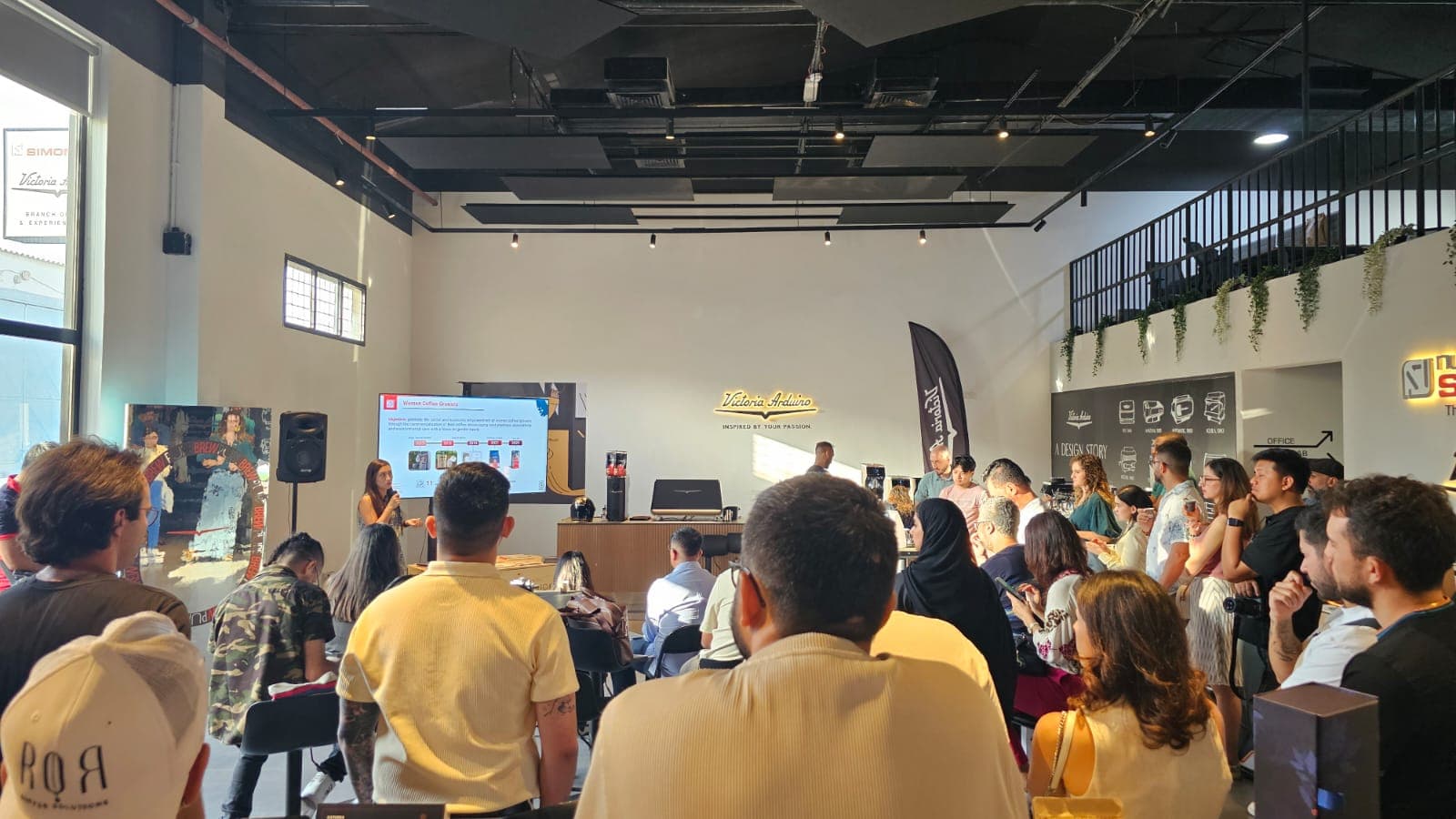Victoria Arduino Expertise Center, in collaboration with the Juan Valdez Colombian coffee chain, organized an event titled “Harvesting Sustainability: A Colombian Coffee Experience” to discuss the sustainability of coffee cultivation in Colombia and the challenges facing this sector.
The event aimed to spark real change by highlighting the crucial role Colombian farmers, roasters, and cafes play in advancing sustainability within the coffee industry. It featured a tasting session of different sustainable Colombian coffee varieties, processed and prepared in various ways.
Coffee Production in Colombia
In 2023, Colombia’s green coffee production reached approximately 11.35 million 60-kg bags, with projections to increase to 12.4 million bags in the 2024/2025 marketing year (USDA Foreign Agricultural Service) (Coffee Geography Magazine). Despite this growth, farmers face significant challenges such as climate change, pests, and high production costs (USDA Foreign Agricultural Service).
Colombian coffee farms cover about 840,000 hectares, involving around 540,000 families. This includes 685,000 hectares planted with modern techniques and 130,000 hectares of non-productive farms being replanted as part of renewal programs (Coffee Geography Magazine).
Sector Challenges
The Colombian coffee sector faces multiple challenges, including:
- Climate Change: Variable weather conditions, such as increased temperatures and altered rainfall patterns, negatively impact productivity and increase pest risks.
- Production Costs: Rising costs for fertilizers, pesticides, and labor wages limit profitability.
- Logistics: Despite improvements in logistics chains, some areas still experience distribution and transportation difficulties.
- Volcanoes: Activity from the Nevado del Ruiz volcano could affect 110,000 hectares of coffee crops if a major eruption occurs (Comunicaffe International).
Importance of Sustainability
Colombia is striving to enhance the sustainability of coffee production by cultivating disease-resistant varieties and improving farming practices to reduce environmental impact and increase productivity. Additionally, campaigns like “Look for the Colombian Coffee Quality Triangle” promote the consumption of Colombian coffee both locally and globally (USDA Foreign Agricultural Service).
The “Harvesting Sustainability” event embodied these efforts by providing a platform for discussion and exchange of experiences among various stakeholders, thereby raising awareness about the importance of sustainability and encouraging the adoption of more sustainable agricultural practices


